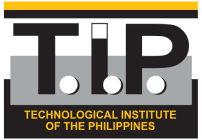

The BSBA-Logistics and Supply Chain Management program provides a comprehensive and integrated mix of logistics science core courses such as transport and physical distribution, purchasing management, risk analysis and assessment, supply chain distribution, warehousing, inventory control, quality management, customer service and others combined with people management, communications, finance, quantitative methods, accounting, information systems, law, economics and strategic planning.
The program aims to impart the theories and concepts in the classroom, and then gives the students training on the practical aspects of the various areas by exposing them to actual work situations through practicum assignment in organizations where they work for a minimum of 600 hours. Likewise, students are assigned to do research on specific logistics issues and concerns, and their findings presented in class.
Recognitions:
From the ASEAN University Network-Quality Assurance (AUN-QA)
From CHED: Center of Development (COD) in Business Administration
From PACUCOA: Level III First Reaccredited Status in Business Administration
PROGRAM EDUCATIONAL OBJECTIVES
Three to five years after graduation, the Bachelor of Science in Business Administration alumni shall:
- have advanced their practice or achievement in the field of Business Administration and/or other endeavors or advocacies supported by their acquired business education;
- strive to be globally competitive through
- living by the T.I.P. mission values, pursuing continuing education, and practicing continuous quality improvement (CQI) in their personal lives;
- continuously scanning, adopting and building on the best practices in their field.
STUDENT OUTCOMES
Under the 2018 curriculum, Expected Learning Outcomes (ELOs)/Student Outcomes (SOs), developed in alignment with the Institutional Intended Learning Outcomes (IILOs) or Graduate Attributes, consist of the following:
By the time of graduation, BSBA-Logistics and Supply Chain Management students will be able to:
- apply knowledge of business concepts and principles using knowledge and technical proficiency to solve business issues and problems in a global and strategic perspective;
- communicate business ideas and information effectively both in oral and written forms;
- use information and communication technology in generating business reports and making decisions;
- apply principles of ethics and commit to professional ethics and responsibilities
- function effectively as an individual and as a member or a leader of a diverse team in a multi-disciplinary settings;
- conduct research through independent studies of relevant literature and appropriate use of business theories and methodologies;
- preserve and promote “Filipino historical and cultural heritage” (based on RA 7722);
- recognize the need for, and prepare to engage in lifelong learning.
On the other hand, the following Expected Learning Outcomes/Student Outcomes were adopted effective SY 2023-2024.
By the time of graduation, BSBA-Logistics and Supply Chain Management students will be able to:
- Propose a solution to business problems in a real-world setting using foundational concepts, theories, and principles of business
- Communicate business ideas and information effectively both in oral and written forms
- Use information and communication technology tools in accurately presenting business-related reports
- Apply principles of ethics and commit to professional ethics and responsibilities
- Function effectively as an individual and as a member or a leader of diverse teams in a multidisciplinary setting
- Create innovative business ideas that preserve and promote Filipino historical and cultural heritage
- Apply creativity, innovation, and critical thinking in developing new business ideas and engage in independent and lifelong learning
- Conduct research through independent studies of relevant literature and appropriate use of supply chain and logistics management theories and methodologies
- Gain real-life experience through immersion in an operational environment related to Demand and Replenishment Management, Procurement, Logistics Operations, and Customer Service




